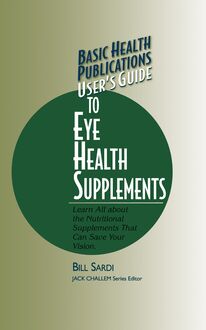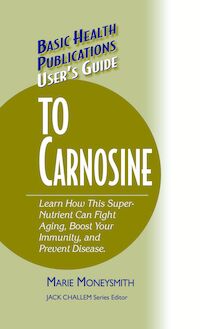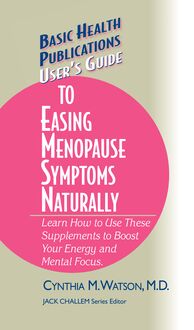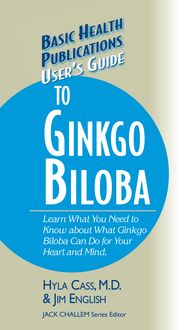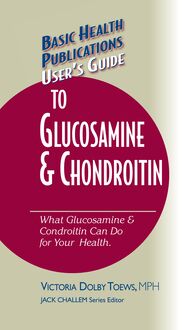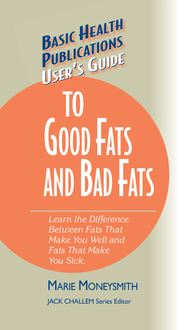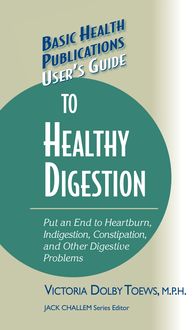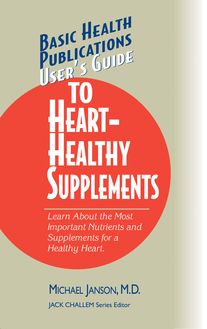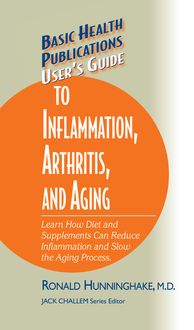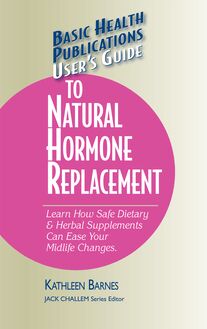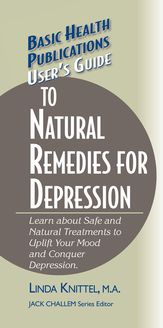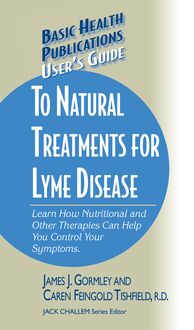-
 Univers
Univers
-
 Ebooks
Ebooks
-
 Livres audio
Livres audio
-
 Presse
Presse
-
 Podcasts
Podcasts
-
 BD
BD
-
 Documents
Documents
-
- Cours
- Révisions
- Ressources pédagogiques
- Sciences de l’éducation
- Manuels scolaires
- Langues
- Travaux de classe
- Annales de BEP
- Etudes supérieures
- Maternelle et primaire
- Fiches de lecture
- Orientation scolaire
- Méthodologie
- Corrigés de devoir
- Annales d’examens et concours
- Annales du bac
- Annales du brevet
- Rapports de stage
La lecture à portée de main
Vous pourrez modifier la taille du texte de cet ouvrage
Découvre YouScribe en t'inscrivant gratuitement
Je m'inscrisUser's Guide to the B-Complex Vitamins , livre ebook
Découvre YouScribe en t'inscrivant gratuitement
Je m'inscrisEn savoir plus
Vous pourrez modifier la taille du texte de cet ouvrage
En savoir plus

Description
Sujets
Informations
| Publié par | Turner Publishing Company |
| Date de parution | 01 janvier 2006 |
| Nombre de lectures | 0 |
| EAN13 | 9781591206941 |
| Langue | English |
| Poids de l'ouvrage | 1 Mo |
Informations légales : prix de location à la page 0,0300€. Cette information est donnée uniquement à titre indicatif conformément à la législation en vigueur.
Extrait
The information contained in this book is based upon the research and personal and professional experiences of the authors. It is not intended as a substitute for consulting with your physician or other healthcare provider. Any attempt to diagnose and treat an illness should be done under the direction of a healthcare professional.
The publisher does not advocate the use of any particular healthcare protocol but believes the information in this book should be available to the public. The publisher and authors are not responsible for any adverse effects or consequences resulting from the use of the suggestions, preparations, or procedures discussed in this book. Should the reader have any questions concerning the appropriateness of any procedures or preparations mentioned, the authors and the publisher strongly suggest consulting a professional healthcare advisor.
Series Editor: Jack Challem
Editor: Carol Rosenberg
Typesetter: Gary A. Rosenberg
Series Cover Designer: Mike Stromberg
Basic Health Publications User’s Guides are
published by Basic Health Publications, Inc.
28812 Top of the World Drive
Laguna Beach, CA 92651
949-715-7327
Copyright © 2006 by Burt Berkson, M.D., Ph.D., and Arthur J. Berkson, M.D.
ISBN 13: 978-1-59120-694-1
ISBN: 1-59120-174-8
All rights reserved. No part of this publication may be reproduced, stored in a retrieval system, or transmitted, in any form or by any means, electronic, mechanical, photocopying, recording, or otherwise, without the prior written consent of the copyright owner.
Printed in the United States of America
10 9 8 7 6 5 4 3 2 1
C ONTENTS
Introduction
1. The Extraordinary B Vitamins
2. Vitamin B 1 (Thiamine)
3. Vitamin B 2 (Riboflavin)
4. Vitamin B 3 (Niacin and Niacinamide)
5. Vitamin B 5 (Pantothenic Acid)
6. Vitamin B 6 (Pyridoxine)
7. Folic Acid (Folate)
8. Vitamin B 12 (Cobalamin)
9. Choline and Inositol
10. Biotin and Para-Amino Benzoic Acid (PABA)
11. Alpha-Lipoic Acid—A Former B Vitamin
Conclusion
Selected References
Other Books and Resources
The authors wish to thank
Rebecca Berkson
for her editing expertise
and time that she spent getting
this book into shape.
I NTRODUCTION
T o show you just how important B vitamins are, let’s begin this User’s Guide with a true story about how one of the B vitamins was used to treat a very serious condition: Ronald, a lawyer from New York City, was having difficulty concentrating on his case file. To pass the time, he watched an attractive secretary from down the hall through his office window. He knew her name was Robin, but that was all he knew about her. He decided he wanted to know her better, so that evening, he introduced himself and asked her to join him for a bite to eat. She agreed. They drove to an uptown restaurant and had a delicious dinner of prime rib with grilled wild spring mushrooms.
Later that evening, on their way up to Robin’s apartment, Ronald became extremely nauseated in the elevator. Once they got into her apartment, he ran straight for the bathroom and started vomiting profusely and had a terrible case of diarrhea. Shortly thereafter, Robin also became sick with similar symptoms. They decided to get themselves to the nearest emergency room.
The attending physician asked if they’d eaten anything unusual that night. When he heard about the wild spring mushrooms, he immediately called the Centers for Disease Control in Atlanta, Georgia, and they referred him to me, Dr. Burt Berkson.
I told the ER doctor to call the restaurant for the source of the mushrooms. It turned out that the mushrooms were an imported handpicked variety from Asia. It was clear to me that the hand pickers had inadvertently gathered some poisonous mushrooms along with the harmless ones. I recommended an intravenous infusion of vitamin B 6 (pyridoxine) solution for Ronald and Robin. The infusion was administered, and Ronald and Robin survived the mushroom poisoning, if not their first date.
How did a simple B-complex vitamin save their lives? In this case, the mushroom poisoning had depleted their storehouse of vitamin B 6 (pyridoxine), an essential nutrient. (You’ll learn more about vitamin B 6 in Chapter 6 .)
The B vitamins can’t erase one’s memory of a first date gone sour, but as you’ll learn in this guide, they can do many other important things for you. On any normal day in our medical office, we might use B-complex vitamins to help treat patients with high cholesterol, heart disease, headaches, poor immune function, anemia, cold sores, shingles, and genital herpes. This remarkable family of vitamins works together as a team to support the health of the entire nervous system.
The B complex family of vitamins includes vitamin B 1 (thiamine), vitamin B 2 (riboflavin), vitamin B 3 (niacin and niacinamide), vitamin B 5 (pantothenic acid), vitamin B 6 (pyridoxine), vitamin B 12 (cobalamin), folic acid (folate), biotin, choline, inositol, and para-amino benzoic acid (PABA). Each B-complex vitamin has a fundamentally different function and a very distinct chemical structure from the others. Your body needs them all in the proper amounts and in the correct balance to stay healthy. By reading this book, you’ll discover the importance of these essential substances and the impact that they have on your well-being.
When people are deficient, they are almost never deficient in just one of the B vitamins. And since the B vitamins work best as a team, it’s important to take a B-complex supplement when taking additional amounts of any single B vitamin. This promotes the natural synergism of the whole family. (Nevertheless, be sure to follow your doctor’s instructions.) Some people may need to supplement with one or two of the B vitamins in particular, and most people will benefit from a daily B-complex supplement. Read on to learn how the various B vitamins can help improve your health and keep you going strong.
CHAPTER 1
T HE E XTRAORDINARY B V ITAMINS
B vitamins—you’ve probably seen them listed on cereal boxes and multivitamin labels; they’re sandwiched between the more popular vitamins A and C. Most people know that vitamin A is good for the eyes and that vitamin C boosts the immune system, but what about the B vitamins? What are they good for? Probably much more than you realize. Although B vitamins have had much less media hype than antioxidants, they are certainly just as important to your physical health and mental well-being. In fact, some B vitamins, such as vitamin B 5 (pantothenic acid) and vitamin B 6 (pyridoxine) even act as antioxidants, or free-radical scavengers, and protect your cell membranes and DNA from damage.
What Are B Vitamins?
The B vitamins are a group of nutrients that are essential to the proper functioning of your blood and entire immune system. They are necessary for the transformation of food into usable energy, proper nervous system function, and good heart health, to name just a few of their important roles.
Antioxidants Compounds that obstruct, restrain, or neutralize free radicals—unstable molecules with extra electron(s) that can destroy biological substances in the body, which can lead to disease.
There are several distinct nutrients that are recognized as B-complex vitamins. They are all water soluble and are necessary for your body to function properly. Sometimes they work individually, but they usually work together as a team. Also, they often need to work in tandem with other molecules and different types of vitamins to function most efficiently.
Even though they are water soluble, some B vitamins can be stored in the body. Others are constantly consumed by chemical reactions or simply excreted through urination and, as a result, must be consumed on a daily basis. If you eat a lot of processed food, drink a lot of alcohol, take certain medications, are on a strict weight-loss diet, or are inclined to fast, you may not have sufficient amounts of one or more of the B vitamins in your body.
Although vitamins, by definition, are nutrients that cannot be manufactured by the body, some of the B vitamins are actually produced in tiny amounts in the digestive tract or in certain organs. How ever, this production is usually not adequate to meet the body’s requirements.
Vitamins Organic substances that are found in most natural foods, or some-times synthesized in small amounts in the body, necessary for growth and metabolism.
Foods Rich in B Vitamins
B vitamins are found in many types of foods. They are often naturally grouped together in various combinations to help one another do their jobs. Organ meats such as liver and kidney are excellent sources of B-complex vitamins. Muscle meats, like steaks and ribs, have high levels of vitamin B 12 , but are not otherwise a good source of B vitamins. Leafy green vegetables, whole grains, and legumes (such as beans and peas), on the other hand, are all great sources of the B-complex vitamins.
Over the past century or so, food manufacturers have been producing cereal products and breads that are highly palatable and clean looking. Disappointingly, these foods have been stripped of their bran and germ. As a result, they are also almost devoid of B-complex vitamins. Due to this process, naturally occurring B-complex vitamins are almost absent from most white breads, pastas, breakfast cereals, and other foods made of simple, highly processed carbohydrates. While most manufacturers add exogenous B vitamins (B vitamins from other sources) to their products, these are not in the perfect balance that nature intended.
Are You Getting Enough B Vitamins?
Most adults could probably benefit from taking up to three times or more the recommended daily allowances (RDAs) of many of the B vitamins. The RDA values were calculated more than sixty years ago during World War II. Their original purpose was not to maximize health and nutrition, but to provide the minimum amounts necessary to avoid fl
-
 Univers
Univers
-
 Ebooks
Ebooks
-
 Livres audio
Livres audio
-
 Presse
Presse
-
 Podcasts
Podcasts
-
 BD
BD
-
 Documents
Documents
-
Jeunesse
-
Littérature
-
Ressources professionnelles
-
Santé et bien-être
-
Savoirs
-
Education
-
Loisirs et hobbies
-
Art, musique et cinéma
-
Actualité et débat de société
-
Jeunesse
-
Littérature
-
Ressources professionnelles
-
Santé et bien-être
-
Savoirs
-
Education
-
Loisirs et hobbies
-
Art, musique et cinéma
-
Actualité et débat de société
-
Actualités
-
Lifestyle
-
Presse jeunesse
-
Presse professionnelle
-
Pratique
-
Presse sportive
-
Presse internationale
-
Culture & Médias
-
Action et Aventures
-
Science-fiction et Fantasy
-
Société
-
Jeunesse
-
Littérature
-
Ressources professionnelles
-
Santé et bien-être
-
Savoirs
-
Education
-
Loisirs et hobbies
-
Art, musique et cinéma
-
Actualité et débat de société
- Cours
- Révisions
- Ressources pédagogiques
- Sciences de l’éducation
- Manuels scolaires
- Langues
- Travaux de classe
- Annales de BEP
- Etudes supérieures
- Maternelle et primaire
- Fiches de lecture
- Orientation scolaire
- Méthodologie
- Corrigés de devoir
- Annales d’examens et concours
- Annales du bac
- Annales du brevet
- Rapports de stage

